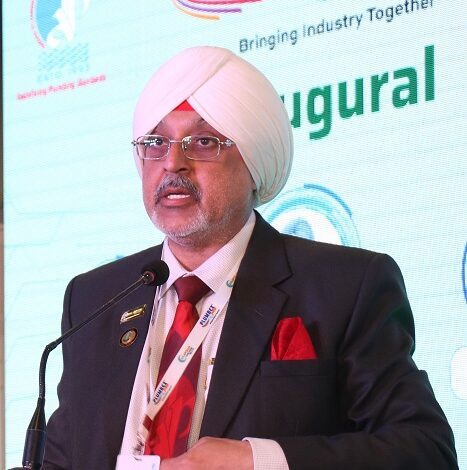HYDERABAD, Oct 26:
By 2030, India will have less than half of the total water demand, said Indian Plumbing Association (IPA )President Gurmit Singh Arora.
As per a NITI Aayog report, by then India will be able to supply 744 billion cubic meters of water against a demand for 1,498 billion cubic meters – a shortfall of over 50 per cent, said Gurmit while
speaking at the Curtain Raiser Meeting on the Water Economy, held here.
He said Water and air, the two essential fluids on which all life depends, have become global garbage cans.
“As we gather for the 30th Indian Plumbing Conference in Hyderabad next month, we embrace the theme ‘Water-The New Currency’ to highlight the critical importance of sustainable water management and innovative plumbing practices,” he informed.
“Together, we can pave the way for a future where water is respected, conserved, and utilized to its fullest potential,” he said.
“In recent incidences, we have seen Bengaluru and Chennai experiencing Day 0,” Gurmit said.
“Day Zero” is the situation when a city’s water supply is almost completely depleted. When “Day Zero” is reached, taps run dry, and municipalities may enforce water restrictions and rations, Gurmeet,who is also the National President of the Indian Green Building Council and an expert on water conservation, said.
In the domestic water sector, the loss of water on account of leakages in mains, communication and service pipes and valves is around 30 to 40 percent of the total flow in the distribution system, he said.
He said, the present utilisation of water can be estimated as about 750 BCM (billion cubic meters) whereas, for the year 2050, it is estimated to be 1180 BCM.6.
He explained water-saving calculations in residential projects with 3-star rating plumbing products.
He also explained how improving processes and technologies enhance water efficiency.
He stressed the importance of Water Auditing (the process that measures and analyzes water usage to identify ways to reduce water consumption and improve water conservation).
The Water Audit establishes the quantity and the volume of water being used, wastage, leakages, excess use and identifies areas where consumption can be reduced. (UNI)
Trending Now
E-Paper


